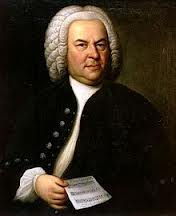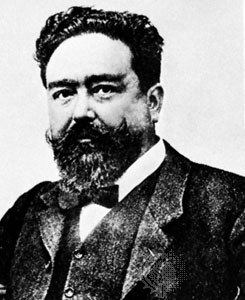Spanish Guitar or Classical Guitar: A Lesson on Leyenda
In this video Jason Vieaux identifies some common trouble spots when learning how to play the famous Spanish guitar song "Leyenda". Many people often get confused by the distinction between classical guitar and Spanish guitar. Since Jason is an expert, we had him explain the difference:
I find that my travels now are great opportunities to tell people I meet in airports, planes and hotels about my online classical guitar lessons at ArtistWorks. Whenever I'm asked, "do you play in a band?" whilst on the road, I often respond that I play "Spanish Guitar", only because it's an easy answer in a busy world. Even though "Classical Guitarist" is a better umbrella description of what I do, "Spanish Guitar" puts the image into most people's minds of a guy or gal sitting, unamplified playing Spanish guitar songs or Latin American music - alone. And yes, I do that… kinda.
What I really do is play music by "Classical" composers from Spain and Latin America, with the requisite classical technique and musical study that is required to play it. I also play Bach, modern, pop and jazz arrangements, 19th century, lots of concertos with orchestra and chamber music, but that's not the point.
20 years ago, I always told people I played "Classical Guitar", but now that half of Led Zeppelin's catalog is approaching over 40 years old, "I'm a classical guitarist" often is followed by, "Oh yeah? Cool. What classic rock do you play?" Thing is, the average bloke in an airport in 2012 doesn't know who Isaac Albeniz is.
Albeniz, Granados, De Falla, etc., made stylized impressions of Spanish dances and dance rhythms, shaped into refined pieces suitable for listening in a concert hall, or eventually, on recordings. Astor Piazzolla, the controversial, beloved, and sometimes hated, king of Argentinean "tango nuevo" said that his tangos were not for dancing, but for listening. The Spanish Albeniz and the Argentinean Piazzolla would have wanted to be ultimately remembered as "Classical" music composers.
Albeniz' impressions of Spanish dances are not just "Classical" music, but "Spanish Music" too, naturally. However, flamenco guitarists like Sabicas, Carlos Montoya, Manitas de la Plata, etc., even though they're playing Spanish music on nylon-string guitars, are not considered by classical guitarists to be performing "Classical Music". And yet you'd be surprised how many top-level classical music professionals (violinists, pianists, conductors) assume that every classical guitarist also plays flamenco, not realizing that a proper Flamenco guitarist is improvising (to a certain extent) over a dance form, and it can be different every time they play it.
The skill set required to be a good Flamenco guitarist contains as much improvisation as it does solid scales and arpeggios. Flamenco is a very different art form, in a way closer to "jazz" than "Classical". I'd sooner go on stage with a clarinet in my hands than perform a proper Bulerias on guitar. (apologies to any clarinetists, it's just an analogy.)
Classical guitarists usually know the distinctions, but "Spanish Guitar" is a very general term that can amazingly (and hilariously) encompass, depending on who you talk to out in the real world, Portuguese Fado tradition, Ottmar Leibert, Carlos Montoya, Jose Feliciano, Albeniz, Carlos Gardel, Charo (!), Piazzolla… I mean the list goes on and on, and I included a couple guys who were from Argentina!!
A lot of Spanish and South American musicians over the years have told me after concerts that when I play "Sevilla" or "Rumores De La Caleta" by Isaac Albeniz, e.g., that they detect a pinch of "non-classical" sensibility in my approach, and I guess they're correct. I've always tried to approach Albeniz with a certain openness, to allow it to be different each time. But only to a certain extent; I would never try to pass off my playing of Spanish classical music as "Flamenco", but I want the listener to hear Albeniz music for what it is: a fusion of the folk idioms and the concert hall.
And the rhythms aren't always literal; there's a lilt, or a snap, to them, in the melodic inflection, just like a spoken language. To cite a different example of rhythmic feel, when you hear Brazilian musicians play triplet eighth notes over quarter-note beats, they don't play them like your metronome plays them, they're on the "back" of the beat, they drag in such a fantastic way, without (and this is crucial) losing TIME, or pulse.
 The same kind of thing with the music of Johann Sebastian Bach…when Bach wrote stylized, highly refined, personalized versions of a Gigue, e.g., he wasn't trying to write a simple Jig you might hear in a tavern. But the same rhythms are there, they're derived from essentially the same impulse. And those rhythms aren't always literal either; that rhythmic lilt in a gigue is a good thing to hear. Bach has soul too, y'know?
The same kind of thing with the music of Johann Sebastian Bach…when Bach wrote stylized, highly refined, personalized versions of a Gigue, e.g., he wasn't trying to write a simple Jig you might hear in a tavern. But the same rhythms are there, they're derived from essentially the same impulse. And those rhythms aren't always literal either; that rhythmic lilt in a gigue is a good thing to hear. Bach has soul too, y'know?
So… Spanish Guitar vs. Classical Guitar… for those of you who are taking online guitar lessons with me and may want to play some Flamenco stuff here's the thing:
I really love Flamenco when it's played well, but I must let you know that I'm not too helpful with the style because it's a totally different technique and involves an expertise with improvising over dance forms that I just don't have. But, Albeniz, Granados, De Falla, Tarrega, Arcas, etc? Or Latin American concert music by Lauro, Barrios, Piazzolla, or Brouwer? Yes, these are composers that are writing music in a more or less "Classical" tradition, music meant to be listened to, played by a guitarist with a certain amount of classical technique, including attention to tone and sound.
So whether you like classical guitar or Spanish guitar – Happy Playing!
Watch Jason's Free Guitar Lessons |
- Jason
For more information about Jason's classical guitar lessons visit www.jasonvieauxguitar.com
Related Classical Guitar Blogs
- Classical Guitar Lessons: Bouree
- Classical Guitar Lessons: Segovia Scales
- Jason Vieaux on All Strings Considered
- Classical Guitar Lesson: BWV 996 Courante (Bach)







